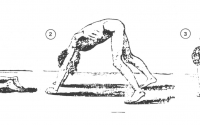Myofascial Therapy: A New Approach to Anxiety Treatment?
A recent study published in the Journal of Bodywork and Movement Therapies suggests that myofascial therapy may be an effective treatment for clinical anxiety.
The study, a randomized, placebo-controlled clinical trial, involved 36 adult patients with clinical anxiety who were randomly assigned to either the myofascial treatment group or a placebo group. The treatment group received four 40-minute sessions of myofascial therapy over the course of four weeks, while the placebo group received four simulated myofascial sessions of the same duration and frequency. Both groups were followed up at one, three, and six months after the treatment.
The primary outcome measured was clinical anxiety, as measured by the State-Trait Anxiety Inventory (STAI). Secondary outcomes included central sensitization, general health, somatization, depression, and pain. The results showed significant differences between the two groups over time, with the myofascial group showing improvements in clinical anxiety, central sensitization, and somatization, with a large effect size for anxiety and a medium effect size for central sensitization and somatization.
After the four-week treatment period, the myofascial group showed a mean difference of almost 20 points on the STAI Trait-Anxiety scale, compared to just under 6 points for the placebo group. There were no adverse events or side effects reported in either group.
These findings suggest that myofascial therapy may be an effective and safe treatment option for people with clinical anxiety.


